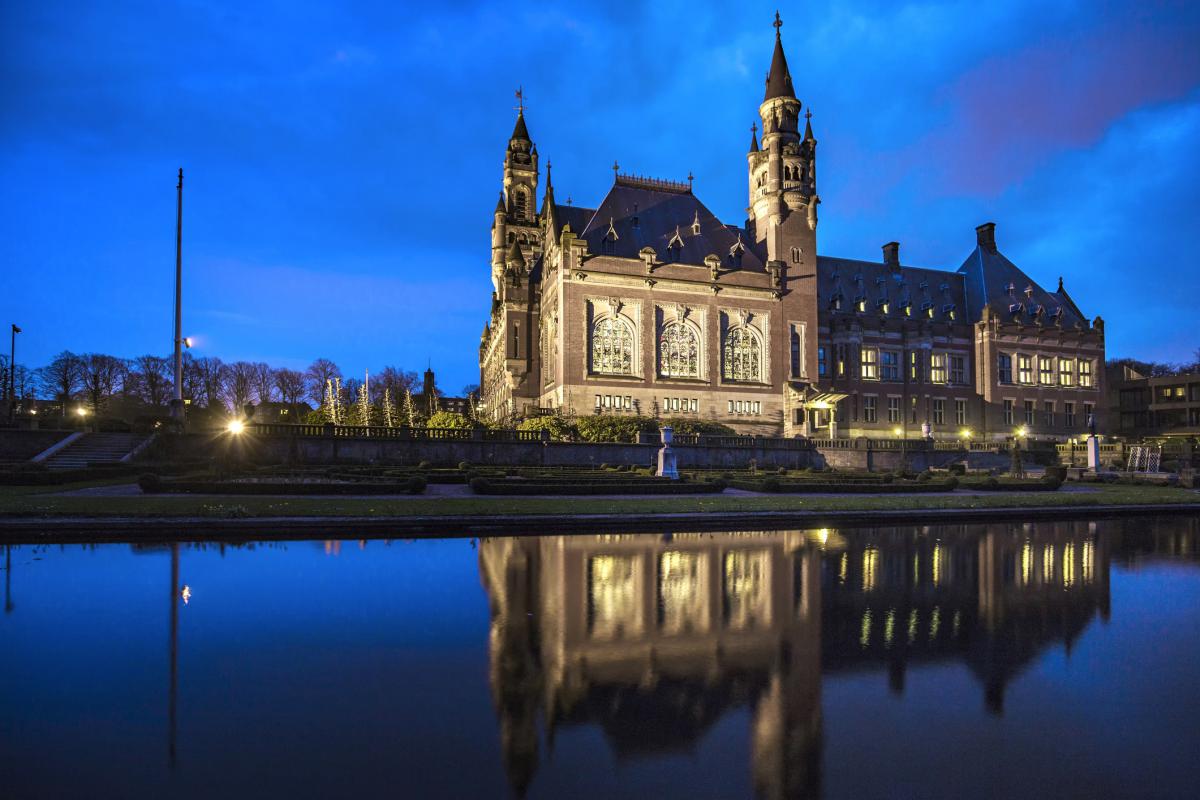Sitting International Court of Justice judges worked as arbitrators in at least 90 investor–state cases: study
At least seven current and thirteen former International Court of Justice (ICJ) judges worked as arbitrators during their tenure, an IISD study found. IISD researchers identified 90 investor–state dispute settlement (ISDS) cases in which sitting ICJ judges have worked–or are currently working–as arbitrators. A total of more than USD 1 million in fees were paid to ICJ judges in nine of those 90 cases. The full amount is unknown because arbitrator fees are typically not disclosed in ISDS cases.
Geneva–November 27, 2017–At least seven current and thirteen former International Court of Justice (ICJ) judges worked as arbitrators during their tenure, according to a study published Monday by the International Institute for Sustainable Development (IISD).
The Statute of the ICJ prohibits judges from engaging “in any other occupation of a professional nature.”
IISD researchers identified 90 investor–state dispute settlement (ISDS) cases in which sitting ICJ judges have worked–or are currently working–as arbitrators. The true number may be higher given that many ISDS cases are not public.
A total of more than USD 1 million in fees was paid to ICJ judges in nine of those 90 cases. The full amount is unknown because arbitrator fees are typically not disclosed in ISDS cases. The average fee paid to a three-arbitrator panel is USD 1.28 million per ISDS case, according to the OECD.
“We are not questioning the integrity of the judges who are being pulled into these other functions,” said lead author Nathalie Bernasconi-Osterwalder, Director of IISD’s Economic Law and Policy Program.
“However, we are concerned that the court’s reputation could be damaged by the fact that some judges are simultaneously working as arbitrators in multiple cases. The ICJ is the world’s most important and respected court charged with the sound administration of international justice. Its representatives need to be held to the highest standards of independence.”
ICJ judges are accepting work as arbitrators in an increasing number of ISDS cases, she noted. A third of the 90 cases identified were registered in the past five years.

The study was published days after the United Kingdom lost its seat on the world court for the first time in its 71-year history. Sitting Judge Christopher Greenwood was withdrawn as a candidate following an acrimonious series of votes at the United Nations. Sitting Judge Dalveer Bhandari of India retained the final open seat.
The study found that Greenwood worked as an arbitrator in at least nine investment arbitration cases during his tenure at the ICJ. He was paid more than USD 400,000 in fees in two of those nine cases. It did not identify any cases in which Bhandari worked as an arbitrator during his tenure.
"It is disappointing to see how the business dynamics of ISDS have been allowed to make their way into the ICJ,” said Gus Van Harten, a professor at York University’s Osgoode Hall Law School whose research focuses on international investment law.
“The ICJ is the preeminent international court, whose judges must strive to protect the court from appearances of bias tied to investment treaties,” Van Harten added. “The judges can do so easily, by avoiding paid side work as ISDS arbitrators while and after they sit on the court. When the judges take on such work, they put the reputation of the ICJ at risk."
ICJ’s 15 judges are elected by UN member states for nine-year terms.
Nearly half of the court’s current members have worked as arbitrators during their tenure. Three of those judges each worked as arbitrators in nine cases. Of those 27 cases, fees were disclosed in nine of the concluded cases and amounted to USD 1.1 million. The remaining four judges were identified as arbitrators in only one or two cases each. Several current judges also worked on annulment committees.
IISD researchers also found that sitting ICJ judges have a dominant role in investor–state arbitration: they have sat or are sitting as arbitrators in nearly 10 per cent of the 817 known investment treaty cases.
Read the full study and an annex detailing the 90 cases here: http://www.iisd.org/sites/default/files/publications/icj-judges-isds-commentary.pdf
For more information please contact Mira Oberman, senior communications manager, IISD at moberman@iisd.ca or 204-958-7700 ext 728.
About IISD
The International Institute for Sustainable Development (IISD) is an award-winning independent think tank working to accelerate solutions for a stable climate, sustainable resource management, and fair economies. Our work inspires better decisions and sparks meaningful action to help people and the planet thrive. We shine a light on what can be achieved when governments, businesses, non-profits, and communities come together. IISD’s staff of more than 250 experts come from across the globe and from many disciplines. With offices in Winnipeg, Geneva, Ottawa, and Toronto, our work affects lives in nearly 100 countries.
You might also be interested in
Stabilization Clauses: The hidden provisions that can hinder tax and investment policy reform
Stabilization clauses should no longer automatically be included in contracts between states and investors. If they are, they should, at a minimum, build on the latest international standards on stabilization to avoid being a barrier to sustainable development.
What Drives Investment Policy-makers in Developing Countries to Use Tax Incentives?
The article explores the reasons behind the use of tax incentives in developing countries to attract investment, examining the pressures, challenges, and alternative strategies that exist.
Compensation and Damages in Investor-State Dispute Settlement
This report provides policy reform options to address the growing issue of damages awards in investor-state dispute settlement (ISDS).
Tropic Coffee
This case study analyzes the extent to which a small coffee processor and trader in Rwanda complies with international standards for responsible investment in agriculture.